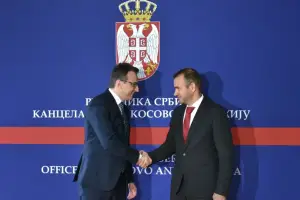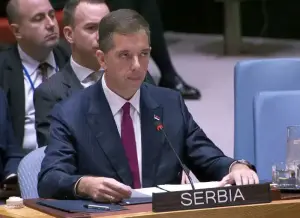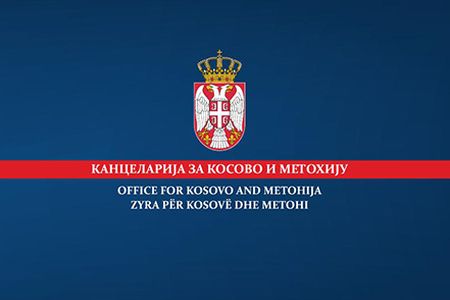The Serbian government’s Office for Kosovo and Metohija stated today that the authorities in Priština, led by Albin Kurti, barred Office Director Petar Petković from being with his people in Kosovo and Metohija for the biggest Orthodox holiday.
- Serbia
Get to know Serbia
- Citizens
Culture and science
Health services
Pension and disability insurance
- Business
Employment
Economy
- Media
- Government
- Contact
Keep in touch
Keepin touch
Whether you have a question, comment, suggestion or any problem in the purview of the government, send us your message and we will try to respond as soon as possible. If your problem is not in our purview, we will forward your message to the relevant institution.
Petković barred from entering Kosovo and Metohija
The statement says that Petković planned to attend the midnight liturgy in the Visoki Dečani monastery on Easter, and to attend the Easter service in the Gračanica monastery on Easter morning, and then to meet and knock on Easter eggs with children in the Draganac monastery.
Although the visit was exclusively of a religious nature and included exclusively visits to monasteries and sacred sites of the Serbian Orthodox Church, without any political intentions, the authorities in Priština banned his visit without any explanation.
For more than a year, Kurti has been preventing Director Petković from visiting Kosovo and Metohija and being with his people, and these prohibitions are not only without any basis, but also represent a direct violation of the agreement on freedom of movement and official visits, especially when it comes to the main negotiator of the Serbian side in the dialogue.
The Belgrade's Liaison Officer announced the vist of Director Petković to the temporary institutions in Priština on time and in accordance with all valid agreements, but Priština continues to unilaterally violate the agreements and cancel all achievements of the dialogue in Brussels.
For all its illegal and unilateral actions, Priština was awarded with the procedure for membership in the Council of Europe. The international community should now respond how the daily flagrant undermining of the normalisation of relations with Belgrade qualifies the so-called Kosovo for membership in this organisation, which should be based on respect for human rights and freedoms.
-
 Belgrade, 25 February 2026
Belgrade, 25 February 2026Priština endangers survival of Serbs in Kosovo and Metohija with escalatory moves
-
 Belgrade, 12 February 2026
Belgrade, 12 February 2026Gratitude to Spain for consistent support on Kosovo and Metohija issue
-
 Belgrade, 10 February 2026
Belgrade, 10 February 2026Belgrade seeks urgent EU response over pressures on Serbian institutions in Kosovo and Metohija
-
 Belgrade, 5 February 2026
Belgrade, 5 February 2026UNMIK’s greater visibility, presence needed on ground
-
 Belgrade/Brussels, 22 January 2026
Belgrade/Brussels, 22 January 2026Accelerate resolution of issue of missing persons
-
 Belgrade, 16 January 2026
Belgrade, 16 January 2026Concrete steps needed to establish Community of Serb Municipalities
-
 Belgrade, 11 December 2025
Belgrade, 11 December 2025Belgrade firmly committed to peace, stability in region
-
 Belgrade/Rome, 10 December 2025
Belgrade/Rome, 10 December 2025Belgrade doing everything to preserve peace, stability in Kosovo and Metohija
-
 Belgrade/New York, 21 October 2025
Belgrade/New York, 21 October 2025UNMIK's presence in Kosovo and Metohija guarantor of peace, protection of human rights


